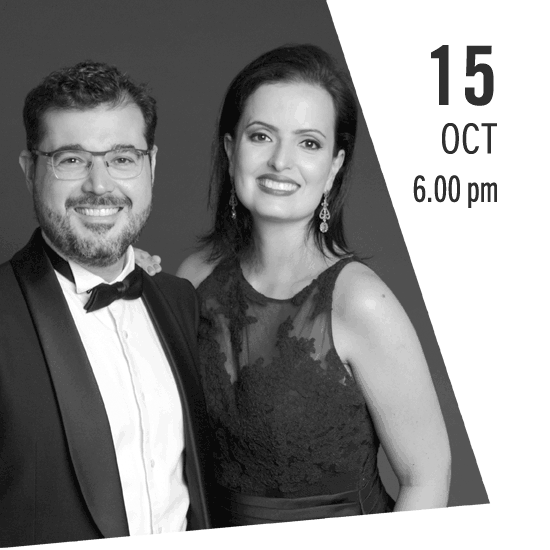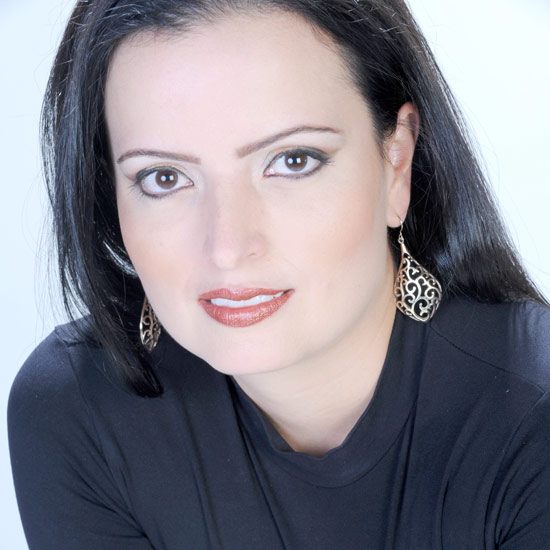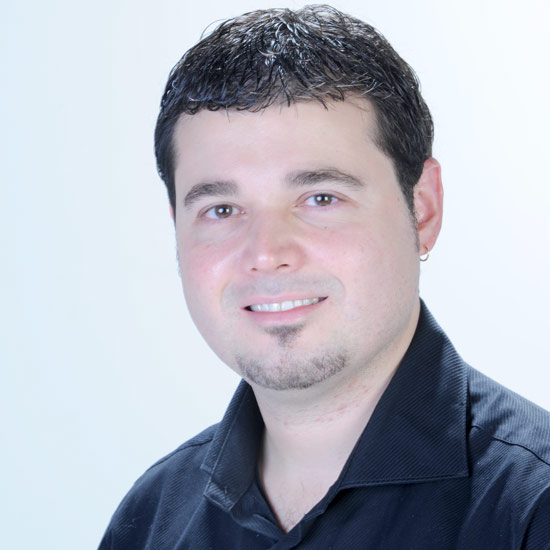
October 15, Sunday, 6.00 pm;
Igreja de Nossa Senhora de Guadalupe · Porto da Cruz;
SACRED BELCANTO
Marco Brescia, organ;
Rosana Orsini Brescia, soprano;
The programme chosen for the present concert is made up of original works, whether for solo organ, voice with organo obbligato accompaniment, or original music for voice and accompaniment adapted for the organ or pasticcio of opera arias adapted to Latin sacred texts, as is the case with the hymn Aeterna Christi Munera, whose original Ambrosian text was adapted to the melody of the highly popular aria Una voce poco fà from Rossini’s opera Il Barbiere di Siviglia. The repertoire in question, which is orientated towards the first half of the 19th century, translates the musical taste in vogue in Italy at the time, whose organ or vocal and organ repertory was profoundly rooted in the Italian symphonic-choral tradition, which underlay, beyond its own boundaries and in inexorable fashion, to contemporary religious music in Southern Europe. Great composers of Italian opera of the primo Ottocento such as Vincenzo Bellini (Catalnia, 1891 – Puteaux, 1835) and Gaetano Donizetti (Bergamo, 1797-1848), both well-versed in the organ, composed both original works for the king of instruments, and adapted for it symphonies from their operas, as is the case with he Due Grandi Offertori by Donizetti. The Sonata per organo in sol maggiore by Bellini, composed during his Milanese years, is his only original work for organ solo and may, to some degree, be considered an homage by Vincenzo to his father, Rosario Bellini, organist, choir master and composer of sacred music, as well as to his grandfather Vincenzo Tobia Nicola Bellini, also an organist and composer, as well as being a kind of reminiscence of the now distant years as organist of his native Catania. His Salve Regina a voce sola di soprano con accompagnamento di organo, in spite of its sacred text, could well come from one of his operas, characterized by the prodigiousness of the melodic inspiration, as well as Tantum Ergo per soprano e organo obbligato by Donizetti, which in orchestral guise and with a secular text could be highly effective in one of the Bargamasque comoser’s melodramas. The no less famous Gioacchino Rossini (Pesaro, 1792 – Passy, 1868), who, unlike Bellini and Donizetti, was not familiar with the organ world, also composed, nevertheless, sacred works for voice and organo obbligato, as well as for voice and other instrumental and orchestral groupings, as is the case with the aria O Salutaris hostia from the Petite Messe Solennelle or the aria Inflammatus et Accensus fom the grandiloquent Stabat Mater, which, in organ reduction, attests the widespread and very natural 19th-century practice of adapting vocal-orchestral accompaniment to the polyphonic organ. One of the most significant names in the world of the Italian organ of the 19th century is, undoubtedly, Felice Moretti, who became better known as Father Davide of Bergamo (Zanica, 1791 – Piacenza, 1863), and whose Elevazione in re minore is pure bel canto lyricism transposed for the organ. Giovanni Morandi (Pergola, 1777 – Senigallia, 1856), a composer from the Marche region was like Bellini – the son of an organist, Pietro Morandi (Bologna, 1745 – Senigallia 1815). One of the paradigmatic works of the 19th-century Italian organ is the virtuosistic Rondo con imitazione de’ campanelli, an idiomatic work that use the church bell register of the contemporary Italian organ, bearing witness to the fact that the churches of the bel paese in the 19th century, a natural and theatrically-influenced sacro bel canto was beautifully sung and played.
Rosana Orsini and Marco Brescia
Program
SACRED BELCANTO
VINCENZO BELLINI (1801-1835)
Organ sonata in G major
Salve Regina
GAETANO DONIZETTI (1797-1848)
Grande offertorio per organo o pianoforte (Sinfonia from the opera Anna Bolena)
Tantum ergo
GIOVANNI MORANDI (1777-1856)
Rondò con imitazione de’ campanelli
GIOACCHINO ROSSINI (1792-1868)
Aeterna Christi munera («Una voce poco fa» from the opera Il Barbiere di Siviglia)
DAVIDE DA BERGAMO (1791-1863)
Elevazione
GIOACCHINO ROSSINI
O Salutaris (Petite Messe Solennelle)
GAETANO DONIZETTI
Grande offertorio per organo o pianoforte (Sinfonia from the opera La Parisina)
GIOACCHINO ROSSINI
Inflammatus et accensus (Stabat Mater)
 Rosana Orsini
Rosana Orsini
Lyrical singer and historian of opera, Rosana Orsini has undertaken roles in operas by Monteverdi (Il ballo delle ingrate), Mozart (Così fan Tutte, Le nozze di Figaro, Don Giovanni), Nebra (Vendado es amor, no es ciego), Bizet (Os pescadores de pérolas), Puccini (Gianni Schicchi), Massenet (Manon) and Verdi (Un ballo in maschera). Described by the Washington Post as “a captivating performer”, she performs regularly in concerts in international festivals in Europe and the three Americas. With Marco Orsini-Brescia she recorded the album Angels and Mermaids: religious Music in Oporto and Santiago de Compostela (Arkhé Music, 2016). She is a graduate in lyrical singing from the Federal University of Minas Gerais, master in singing from the Manhattan School of Music (USA), a post-graduate in singing from the Royal Academy of Music (USA), doctor in history and musicology from the universities of Sorbonne – Paris V (France) and Nova, Lisbon. She specialized with Antonio Florio in the historical performance of early music at the Conservatorio di San Pietro a Majella in Naples and with Edda Moser in Mozart performance at the Mozarteum Institute of Salzburg (Austria). She is a researcher at CESEM/FCSH/Nova.
 Marco Brescia
Marco Brescia
An Italian-Brazilian pianist and organist, Marco Orsini-Brescia is the winner of the 10th Arnaldo Estrella Nacional Piano Competition, Brazil. As a grant-holder of the Spanish government, he attended the international piano course of the Raina Sofia Higher Music School, given by Russell Sherman. He took part in the International Music Prize of Daroca, Spain, under the direction of José Luis González Uriol, a decisive influence on his artistic-musical path. He holds a doctorate in historical musicology (Paris IV-Sorbonne and Lisbon Nova Univetsities), with a classification of très honorable à l’unanimité, and a masters, with a matrícula de honor, in early music/historic organ (ESMUC/UAB) under the orientation of Javier Artigas. He performs regularly in concert in the most prestigious international halls and festivals in Europe, and of Central and Southern Europe. His disc Zipoli in Diamantina: complete organ works (Paraty, France, 2020) was distinguished by the Spanish review Scherzo and recommended by the French review Diapason. He has been awarded with the Medal of Honour by President Juscelino Kubitshek (Brazil). Since 2019, he has been a researcher at FCSH/Nova and coordinator of the Music in the Modern Period Group (CESEM).
